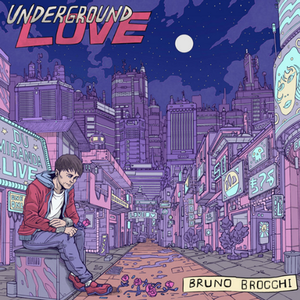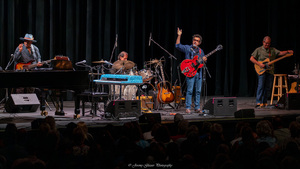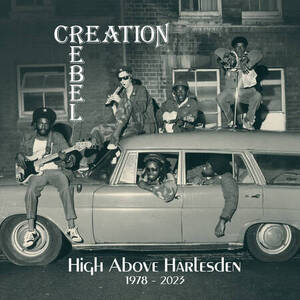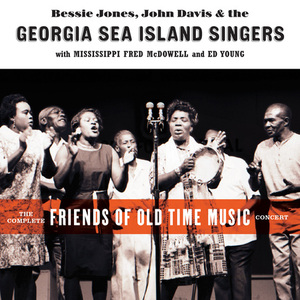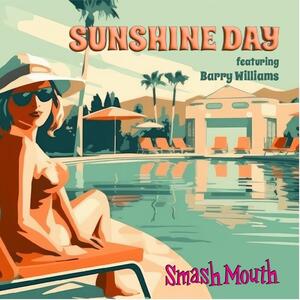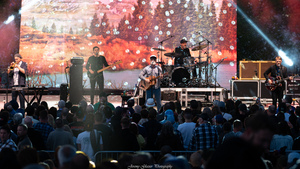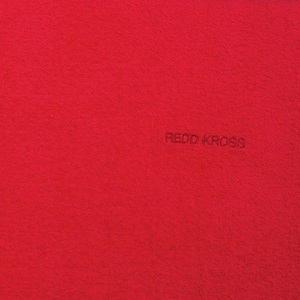My Own Ed Sullivan
or: The Night Devo Scraped My Brain Fresh
James Mann
The appearance of The Beatles on The Ed Sullivan Show in February 1964 was a watershed moment in rock and roll – for the first time, Americans were confronted with the Fab Four, and for many people, their lives would never be the same again. Read most any account by an over 40-year-old rocker today, and they point to that show as being the spark that lit their desire to be a musician, the latest example being Gene Simmons of Kiss in his autobiography Kiss and Make Up. For kids too young to have seen (or at least remember) the hip-censored Elvis on Sullivan in the ’50s, The Beatles seemed outrageous. Legions of Macca wanna-bes danced around the living room, singing into hairbrushes and strumming air guitar with a tennis racket.
Well I was two in 1964, and I doubt if I saw the Beatles on Ed Sullivan, at least not in my youth. By the time I became cognizant of them, they were an established force – in fact, they were on the verge of breaking up. I loved them, sure, but they didn’t change my life, other than defending them to those in my circle who were more taken with The Monkees – to them, The Beatles were “sissies.” No, The Beatles were just one of the dozens of bands I liked – along with The Rolling Stones, Led Zeppelin, and Black Sabbath et al. I was a voracious reader of rock magazines – Creem, Rolling Stone, and Circus, among others – and in those pre-MTV days, that was about as in depth as you could get.
In fact, practically the only way to see your heroes was by virtue of television, on shows such as Midnight Special and Don Kirshner’s Rock Concert. A teenager in the ’70s wasn’t as flush with disposable income as those of today (at least I wasn’t), and thusly weren’t able to venture down to the local arena to see a show. I remember paying $50 to see Led Zeppelin in concert – an incredible amount of money for what was probably an under ten-dollar ticket. Oh, how times have changed.
But during my high school days, one thing we all did was watch Saturday Night Live – partly because the show was funny (hard to believe these days, I know) and partly because they had the coolest musical acts. Patti Smith, Elvis Costello, The Band – they all appeared on SNL in the ’70s, but one evening, an event occurred that rearranged the atoms of my brain, and showed me the light. The following Monday, I was initially dismayed to discover that I alone had relished what I had seen – my friends all thought that the musical act that night was in fact just another skit put on by the SNL cast. But on October 14th, 1978, the heavens parted, and for a brief moment, I saw the future of music, and by extension, my future as well. Five men in yellow plastic suits, deconstructing The Stones’ “Satisfaction.”
“devo”
They were, of course, Devo. In the dark midnight of late-night television, the five spuds from Ohio jerked and twitched robotically through the framework of the song, looking all the while as if controlled by forces from the beyond. No longer was the song an anthem of sexual frustration. Now it was transformed into the frightened wail of a world slowly winding down (“de-evolving,” I was to find out). I thought the performance brilliant. Punk had already shown us that technical ability was perhaps not as important as passion, but Devo took that to the extreme. In their hands, all the nuances and flourishes that Keith Richards and Mick Jagger had invested in “Satisfaction” were stripped away, and in their place was a mechanical jaggedness and scratchy guitar, topped by a compulsive, chirping vocal. This was music anyone could PHYISICALLY play – but few, oh so few, could mentally understand enough to try. This was the way and the path out of the three-guitared, pot-bellied pigs of southern rock; gone was the endless tedium of recycled boogie and metal music. Devo was new, Devo was fresh and revolutionary. Devo pulled back the curtain on rock and roll’s “Oz” and showed us that the wizards were not only tiny, silly men, they were IRRELEVANT! I felt born again – finally, someone spoke to me and my view of the world, a world that I had already decided was a noble experiment gone horribly awry. Devo knew this – “We are not men, we are Devo” was their war cry – and the word “Devo” could mean anything you wish. While bands such as The Sex Pistols, The Clash, and The Ramones were perhaps reactions to the old, flabby state of rock and roll, Devo revolted against life itself. Yes!
Perhaps my friends were correct, and Devo was just another skit, telling a joke. But they never realized the true joke wasn’t the silly suits and atonal singing – it wasn’t the music at all. It was a bigger joke, a far grander, yet subtler statement – life. Every belief, every pretension that you based your meager, day to day existence on was a joke. Your gods were nothing but smoke and mirrors, their tenets sloppy posturing. Unlike the prophets before them, Devo offered no “true way,” no roadmaps for desperate believers. No, in the world of Devo, you were on your own, sink or swim purely on your own merits. The fact that most would sink (including the band themselves) didn’t matter. Life was a joke. Someone once made the statement concerning life on other levels of consciousness, crudely paraphrased, as “What if our reality is their heaven?” Devo showed us all just how horrid such a concept was. ◼

